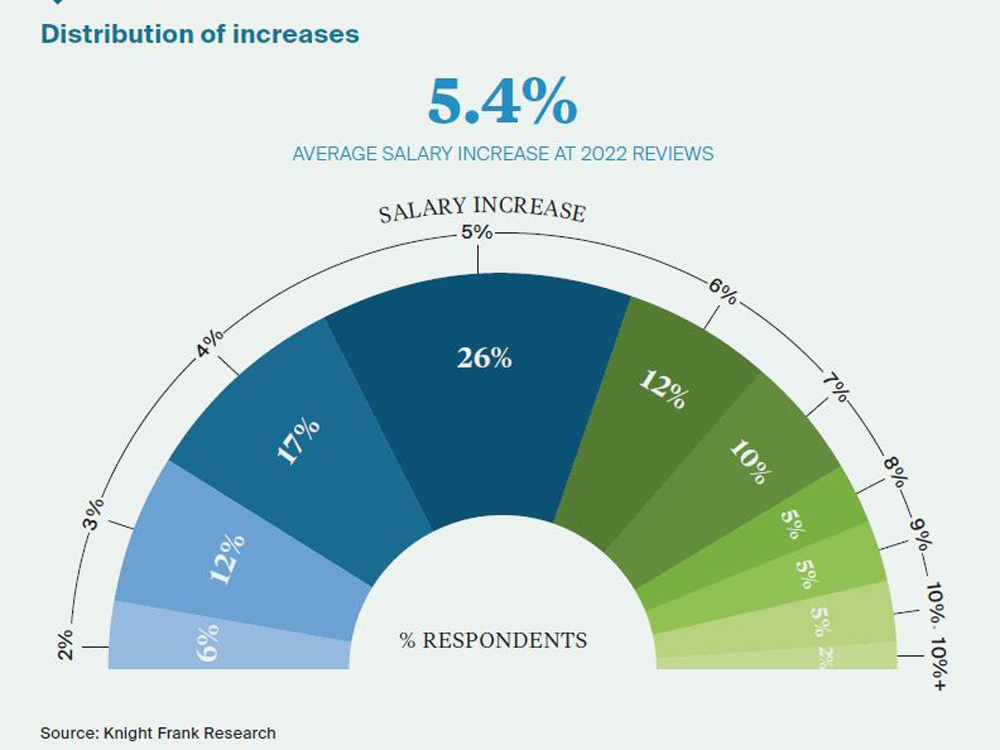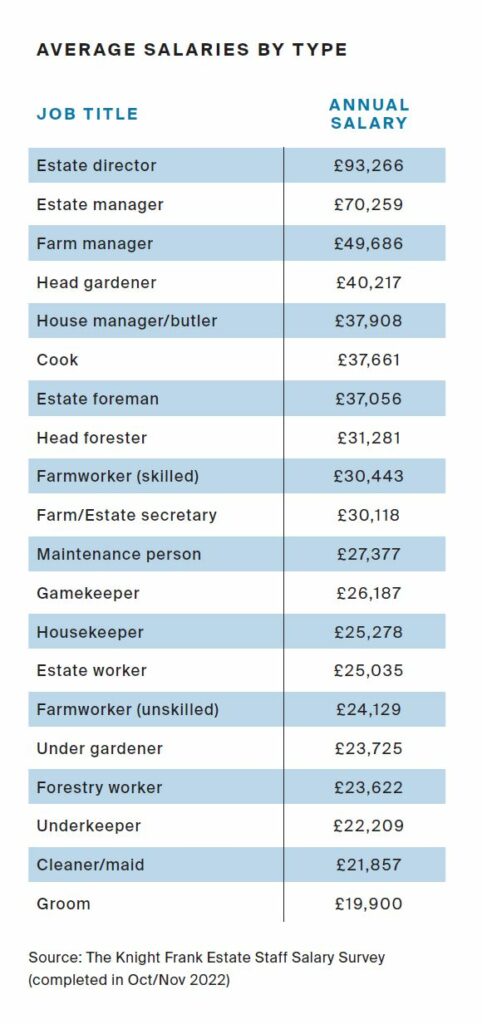Nearly 90% of farms and estates report “extremely limited” staff availability, survey shows
6th December 2022
With annual inflation now in double figures, salaries are being driven by not only a shortage of good staff, but also the cost -of-living crisis, according to Knight Frank’s biennial Estate Staff Salaries Survey.
This year’s survey revealed an average salary increase of 5.4% following pay reviews, which is double the level recorded in 2020. It is also well above the average boost of around 2% or so received by the public sector workers this year, but slightly below the 6.2% hike received by private sector workers between June and August.
However, it is difficult to make exact comparisons as many estate staff remuneration packages include some kind of subsidised accommodation. The average figure also hides a wide range of increases. A small number of estates seem to have fully matched the increase in inflation when calculating salary rises for their staff, while a number are some way below, Knight Frank said.
Despite the current economic turmoil, the survey revealed staff availability for farms and estates remains extremely limited and recruitment was highlighted as an increasingly difficult issue by 86% of respondents.
Meanwhile 57% of those who employ staff from overseas said they are finding it harder to recruit.
Head of rural research Andrew Shirley, commented: “Even specialist agencies often provide unmotivated and under-skilled candidates unwilling to work hard, say a number of our participants.”
When asked which roles were hardest to fill, respondents listed a wide range of positions, but estates with diversified hospitality businesses like catering or wedding venues seemed to be struggling the most, according to Knight Frank.
This is perhaps unsurprising given the huge levels of competition from the wider hospitality sector suffering from a lack of EU workers post-Brexit. Even McDonalds is now offering salaries of over £13/hour, which is well above the new minimum wage announced in Chancellor Jeremy Hunt’s Autumn Statement.
Meanwhile, 42% of respondents listed staff retention as a growing problem.
With such an imbalance between staff supply and demand, potential recruits are also becoming increasingly selective about the roles they are prepared to take on, with remuneration just part of their criteria, Knight Frank added.
In addition, over 40% of survey respondents said that they were increasingly being questioned about their social and environmental policies.
Alistair Paul, head of the rural consultancy eastern region at Knight Frank, commented: “While it is easy to dismiss such requests as the preoccupations of Gen-Z workers, they are unlikely to diminish. Putting in place strong environmental and social policies also undoubtedly creates businesses that are more sustainable and better placed to weather the growing climate change and biodiversity challenges.
“A good example is the net zero strategy recently released by the Duchy of Cornwall. Employers who recognise and respond to the big issues of the day, particularly environmental matters, will be in a better position to attract the most motivated staff,” he concluded.



